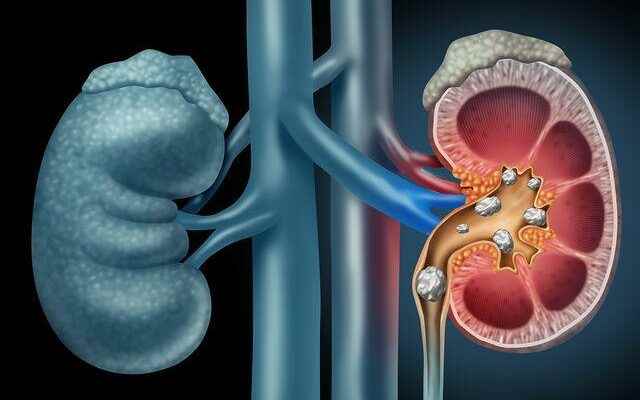Kidneys ensure that waste materials are removed from the body so that life can continue. Impaired kidney health can also lead to other diseases. Kidney stones, which are frequently encountered in the community, cause very serious problems. Seeing the observed disorders as insignificant and ignoring them can cause chronic kidney failure. Urology Specialist Prof. Dr. Cem Güler warned against the formation of kidney stones. prof. Dr. Cem Güler, “Although kidney stones can cause intense pain to the patient, early diagnosis and treatment is important in order not to cause kidney loss.” he said.
WHAT IS KIDNEY STONE?
Kidney stones are hard structures formed as a result of crystallization and clustering of some minerals that need to be excreted in the urine. While some of these stones can be excreted with urine, some of them can block the urinary tract and this can cause severe pain.
WHY DO KIDNEY STONE OCCUR?

Kidney stone formation usually occurs due to the high levels of calcium and uric acid in the urine, and the low amount of substances that are responsible for preventing stone formation, such as citrate and magnesium. Factors causing stone formation,
- Genetic predisposition
- recurrent urinary tract infections
- Other kidney ailments
- insufficient physical mobility
- insufficient fluid intake
- Gout
- They are listed as congenital kidney abnormalities.
WHAT ARE KIDNEY STONE SYMPTOMS?

Since kidney stones usually cause intense pain in certain areas, it is a condition that encourages a doctor to consult a doctor and can be easy to diagnose. Common symptoms,
- Blood and/or turbidity in the urine
- Nausea
- Vomiting
- chest pain
- Backache
- It is listed as abdominal pain.
HOW IS KIDNEY STONE TREATMENT?

Although the size and type of the stone are important in the treatment of kidney stones, the person who will decide on the most appropriate treatment method after a detailed examination of the patient is a specialist urologist. While the use of medication and abundant water consumption may be sufficient in the treatment of some stones, operations may be required to remove larger stones that cannot be healed with medication by the urologist. In commonly applied operations, lithotripsy with shock wave, ureteroscopy and lithotripsy or removal methods, or in more advanced cases, closed kidney stone surgery called percutaneous nephrolithotomy can be applied.
RENAL STONE AND CHRONIC RENAL FAILURE
Chronic Kidney Disease is an important health problem that is common all over the world. The results of a screening study conducted by the Turkish Society of Nephrology reveal that 1 out of every 6-7 adults in Turkey has chronic kidney disease. The first sign of chronic kidney disease, which may not show obvious symptoms, especially in the early stages, is usually fatigue and muscle weakness during daily activities. Kidney stones also stand out as one of the diseases that can pave the way for chronic kidney failure when neglected. When kidney stone symptoms are noticed, it is important to undergo a specialist urologist examination without delay in order to prevent chronic kidney disease.
